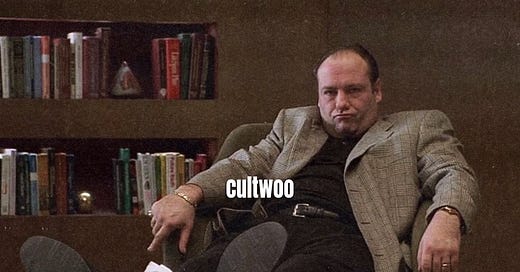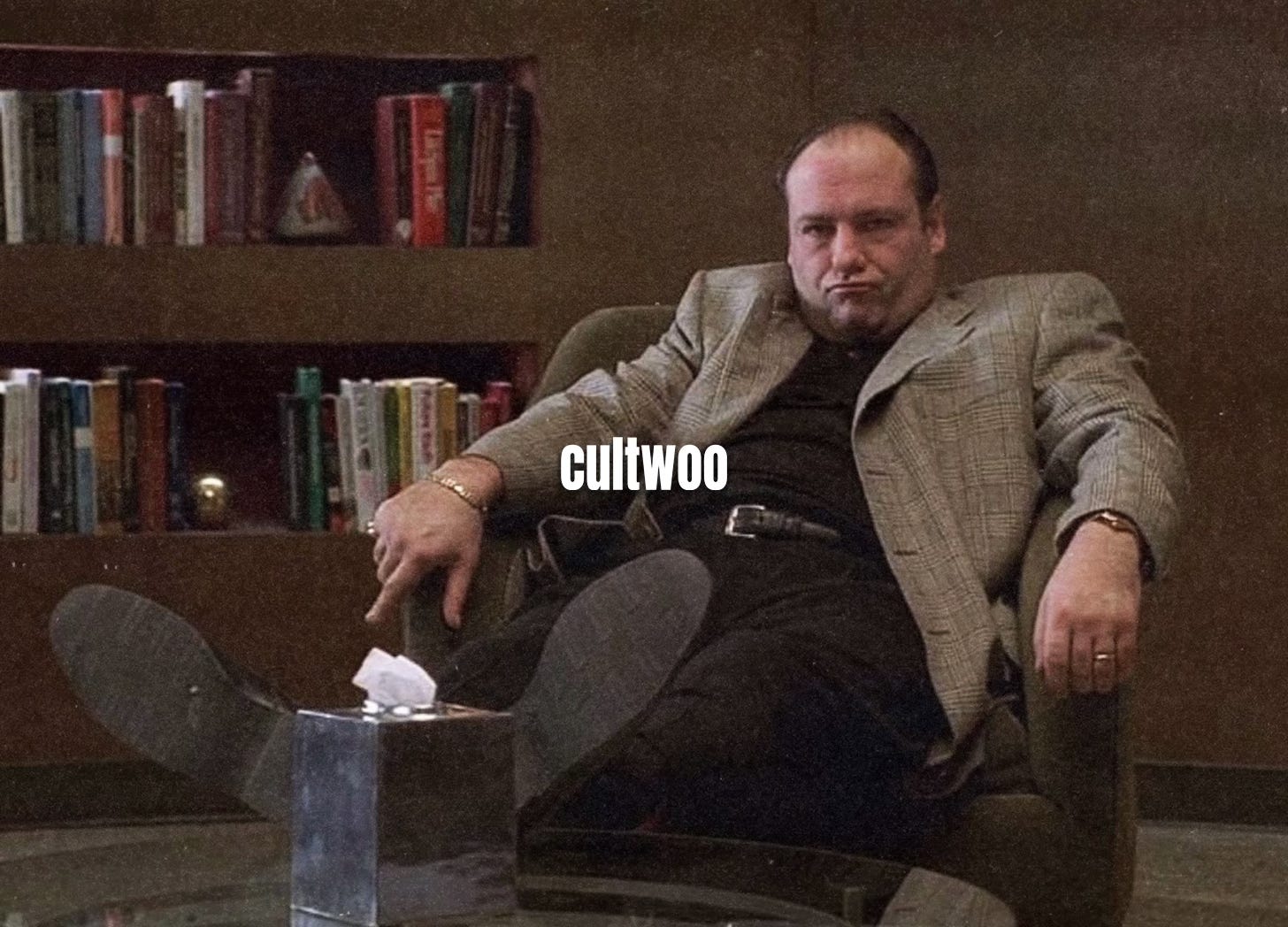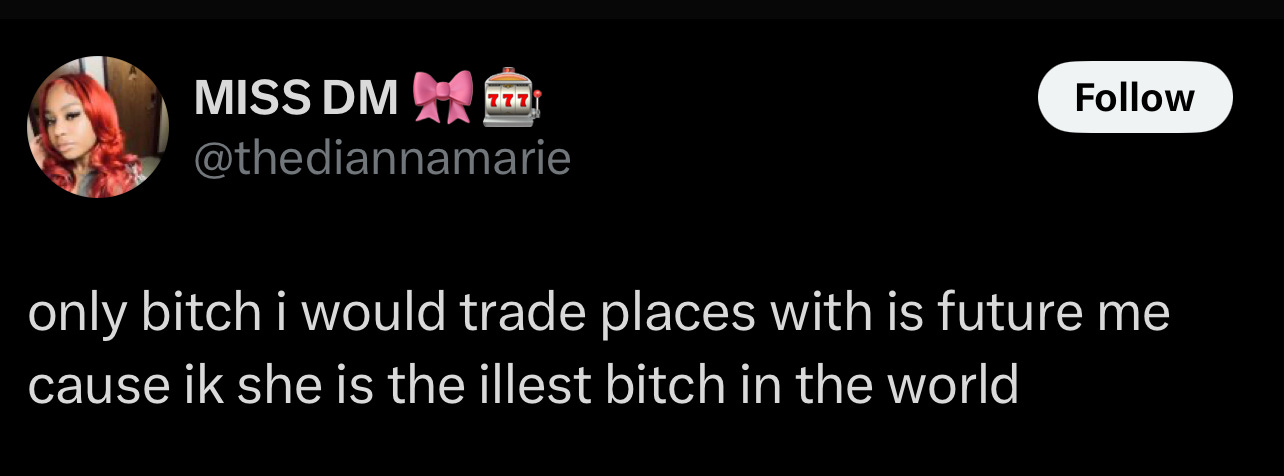what stage of self-accountability are you in?
"all this f*cking self knowledge, what the f*ck has it gotten me?" - tony soprano
Good evening!
I got YouTube Premium. I know, I know, it’s ridiculous. I actually had it for a few months now because I couldn’t deal with the ads in between my ASMR videos. I have the day off so I’m catching up on some drafts that’s been sitting for way too long. If you’re interested in a list of recommended media, books and content creators over 40+, let me know and I’ll make a dedicated newsletter for it! Now grab a glass of wine (or water) and let’s get into it.
Detachment & Emotional Control
True self-awareness cannot exist without accountability, and not the accountability that comforts our ego. It’s why the best life advice — usually given by mature unapologetic women with years of adjusting their own philosophies and putting it in practice — is usually the most triggering.
About a year ago, I began to slow down and process years of repressed experiences. I’ve learned a lot about myself and others. Once you decenter men, you eventually end up ‘decentering’ women in a way as well. Except I also had to acknowledge where I was falling short and invest time in learning what isn’t naturally talked about yet critical to thrive. As adults we’re still responsible for the information we’ve yet to be made aware of.
Between around 28 to like 35 you start to see your peers quietly become uninspired and begin speaking like the old heads who act like it’s silly to still have aspirations and not settle down the traditional way. Not ‘round here partner, not ‘round here.
I’ll drop everything and move to Spain before I let stagnancy win. Y’all know this.
Since then, I’ve become considerably more private of my personal journey and protective of myself, less reactive, and calmer. I’m opposed to over-identifying with trauma. I’m still becoming. I have no desire to trauma-bond. Eventually you stop focusing on things that don’t matter in the long run. You grow a bit jaded with being in a loophole of the past and emotionally attaching yourself to situations or people. I’m more interested in my own curiosities and learning at the moment. I want to immerse myself in cool shit and find a home it.
I want to move forward.
I’ve grown to appreciate certain aspects of stoicism because it reminds you to keep a level head, stay focused, and have emotional discipline.
We — women especially — want the world but expect everyone else to change in order for us to get it. “Well it shouldn’t be like that.” This is how kind-hearted people continuously find themselves getting mistreated. Humans will be humans. And right now, in this current timeline, it’s like that babe.
Actually, humans might be the most deranged they’ve ever been since the 80s. And no I wasn’t around for the 80s but you get my point.
This doesn’t mean you have to be deceitful. It doesn't mean you have to sacrifice your rest, or compete with every woman you encounter, or stop caring about social justice. Nor does it mean that nothing should be critiqued. It could mean getting serious about things like strengthening your discernment and social skills, setting firmer boundaries, sticking to your word, and minding your business.
We don’t know everything. No one can outsmart all of life’s circumstances. However, at some point you have to take off the rose-colored glasses and take agency over your life instead of constantly focusing on the shortcomings of other people. You stop making excuses and finding distractions for the things you really want to do or need to do. You stop being triggered by everything. The good news is we can change at any time.
To clarify, these ‘stages’ are not to be confused with self-actualization — coined by Kurt Goldstein, a physician who specialized in neuroanatomy and psychiatry. Self-actualization is the highest level (5) in Abraham Maslow’s Hierarchy of Needs essay and involves realizing and fulfilling your potential, self-acceptance, and striving to become everything you’re capable of becoming. The stages I customized from readings and content more-so set a healthy foundation for 2-4 of his five-tier pyramid, depending on your situation. Of course you can ignore this if you don’t care to get specific and find it unnatural. After all, the hierarchy is a very westernized perspective of things, but I do think it’s a descent guideline for self-reflection and honesty.
What stage are you in?
Self-Reflection
Honest self-reflection looks like recognizing your thoughts, feelings, and behaviors, and how they align with your values. During the self-reflection phase, you may start critically questioning yourself or the truth of an experience, and potentially noticing patterns that doesn’t serve you. Socially you might withdraw from others or listen more attentively in conversations.
Internal Conflict
When you see “feminine rage” or “girl rage” on social media, they may be referring to the internal conflict between old habits and new realizations. This is an uncomfortable stage where you may be resistant to change and easily irritated. Anger or blame will probably be directed at others or yourself. You may become a bit paranoid as well. The way anger is projected looks different on everyone. Despite this, conflict is necessary for growth because it highlights what needs to change.
Acknowledgment and Authenticity
You move from blaming others and self-pity to recognizing your role in the outcomes. Self pity probably looked liked trauma-bonding, seeking validation, or dwelling on the past. This phase will be you taking ownership of your actions and their impact, which is necessary for accountability. If you were victimized in some way, you begin to find the balance in acknowledging that you didn’t deserve what happened along with any personal accountability.
Responsibility and Empowerment
Taking responsibility means accepting that you have the power to change your circumstances. This is empowering because it shifts focus from external blame to internal control and change. You’re trying to improve your behaviors to avoid enduring the same thing again. Depending on the situation, that might look like following through on commitments to yourself or others, setting firm boundaries, clear communication, educating yourself, and/or holding others accountable constructively.
Forgiveness or Self-Acceptance
Overtime you let go of resentment and bitterness. You allow emotional healing and further growth. For some people, that’s forgiving yourself or others. For others it may be apologizing. Nevertheless, you’re accepting reality for what it is to move forward.
Growth and Integration
You integrate new behaviors and perspectives into your lifestyle leading to personal growth, more authentic relationships, and better decision-making.
Sustained Self-Improvement
This is self explanatory. You’re putting it in practice. The process is ongoing, but you ultimately move through life much easier and cultivate a higher level of respect from others which will lead to success in other areas.
See you next week,
TRK







I’m definitely in the growth and integration stage. I just started EMDR for trauma at the beginning of the year and it’s helped so much! I’m learning to let the past go and accept my current reality. I also had some new relationships come my way that have been very fulfilling. Just overall I’m open to learning new perspectives and growing. This was a great read Tia!🤎
This put all of my thoughts and feelings into words and gave me an understanding of where I am. I'm definitely in between the internal conflict and acknowledgment and authenticity. For a couple of weeks, I've been trying to put a label on it to understand it and now it makes sense. Angry with myself because if I knew better, I'd do better. And now that I know better, I am actively working on doing better and acknowledging where I went wrong--even if I was the victim.
Thank you for this!